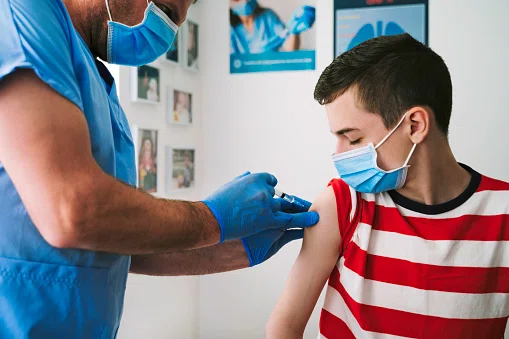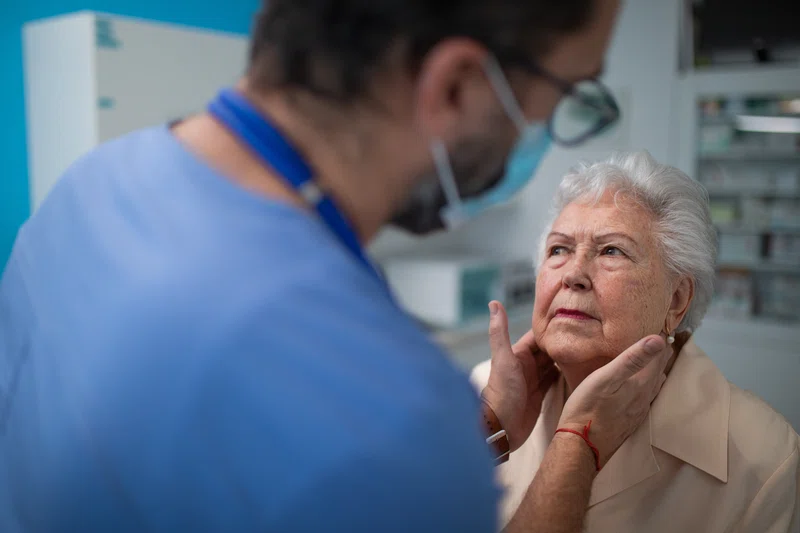Health leaders are calling for the rapid rollout of a climate-health action plan as floods and extreme heat kill Australians.
Forty health and medical organisations warn pressure on the health system from climate change is growing as additional deaths add to the strain of a global pandemic.
Nurses, midwives, psychologists, the Australian Medical Association, the Royal Australasian College of Physicians (RACP) and others on Monday issued a set of urgent recommendations.
RACP president Jacqueline Small said doctors had a unique view and considerable experience of how climate health and human health fit together, and knew their communities.
“We see the impacts of climate change all the time, on our patients, and on our staff who are at the front line dealing with crises every day,” Dr Small said.
The Albanese government intends to develop a national strategy on climate, health and wellbeing, but is being urged to hurry by experts at the Better Futures Forum in Canberra.
States and territories also need support to cut emissions, whether retrofitting heating and cooling, electrifying food preparation and transport, or designing less carbon-intensive future hospitals and clinics.
A Sustainable Healthcare Unit in the federal Department of Health is among the recommendations, to show the health sector how to shift to lower-emitting operations.
SBS News, 5 September 2022
MRIs are rarely necessary for patients who experience headache and migraine, Sydney-based neurologist Dr Bronwyn Jenkins told the Australia & New Zealand Headache Society’s virtual annual scientific meeting.
Dr Jenkins told the audience that neuroimaging in primary headache disorders could lead to false positives, a cascade of further tests, increased patient anxiety, exposure to radiation, overdiagnosis of asymptomatic conditions and costs to the patient and health system. “Only do a test if it’s going to change the management for the patient,” she said.
“If there are clear-cut abnormal features and progression of the headache that’s not responding the way you’d expect it to for usual management, then do investigations such as imaging.
“But if it’s a typical migraine with or without aura, not every patient will need an MRI scan.
“I think we do it to reassure the patient and put it to rest, and often we end up not reassuring the patient because it leads on to further tests.”
“People who have migraines were more likely to have white matter hyperintensities, or clinically silent small white dots in the subcortical white matter of the brain,” Dr Jenkins said.
“These changes on imaging are recognised as being overly present in people living with migraine, but not necessarily pathological such as demyelination, vasculitis or other disease that would concern us and need other tests and treatments.
“MRI scans are often ordered, and because people with migraine have more white matter hyperintensities or white dots in the brain, that can often cause a lot of concern from the clinician and the patient, and unnecessary follow-up scans.”
Medical Republic, 29 August 2022
Emergency rooms across Australia have been inundated with children struggling to breathe – and it’s not because of COVID-19.
Respiratory viruses, including respiratory syncytial virus and influenza, have been hitting kids more frequently and in patterns not before seen.
According to Perth paediatrician Asha Bowen, Western Australia and the Northern Territory are experiencing a peak in RSV cases – something that would usually happen in June.
But during the pandemic, RSV surprisingly peaked nationally in January and February.
For RSV to climax in September and October, it gives hope that things are moving back to normal and towards the depths of winter – but it’s anyone’s guess if that is actually going to happen, Dr Bowen said.
The days of regular peaks and troughs are gone, with practitioners noticing numerous changes in the way viruses are presenting.
Couple that with limited immunity, thanks to spending months indoors during the pandemic, and children seem to be getting more of the viruses out there.
“Normally we see RSV and then influenza and then the other spring viruses like rhinovirus, metapneumovirus and others,” Dr Bowen told AAP.
“But there has been no sort of usual pattern this year … they are cropping up whenever now and maybe it is because COVID has left them room.
She said the increased number of respiratory illnesses in children meant an increase in hospital presentations and added pressure on the system.
Australian Associated Press, 8 October 2022
A major study has found the rare side effect of myocarditis from the COVID-19 mRNA vaccine is far milder and less common in adolescents than complications of the virus itself, prompting calls for more parents to have their children immunised as vaccination rates lag.
Australia’s largest study of mRNA vaccine-associated myocarditis in adolescents and young adults at a Melbourne hospital found the condition had a “mild, self-resolving clinical course”, in research to be published in The Medical Journal of Australia on Monday.
The Royal Australasian College of Physicians President Dr Jacqueline Small, a Sydney paediatrician, said she hoped the “very encouraging” findings would reassure parents still hesitating to get their children vaccinated against COVID-19.
“Even in these young people who were admitted to hospital in Melbourne, they were very easily treated and didn’t present with serious illness, and their stay in hospital was very short,” she said.
“We know that COVID-19 can be associated with severe illness and even, sadly, death for some children, which is why we encourage vaccination.”
Lead author Dr Suraj Varma, a paediatric cardiologist at MonashHeart and Monash Children’s Hospital, said the findings would be “incredibly reassuring for parents” weighing up the risks and benefits of COVID-19 vaccination.
The Sydney Morning Herald, 8 August 2022


Members in the media
Members in the media





